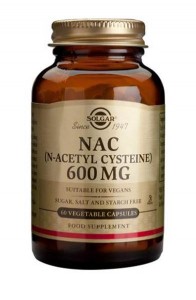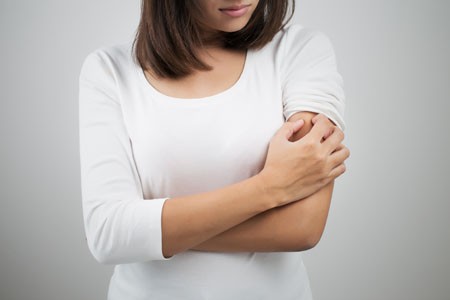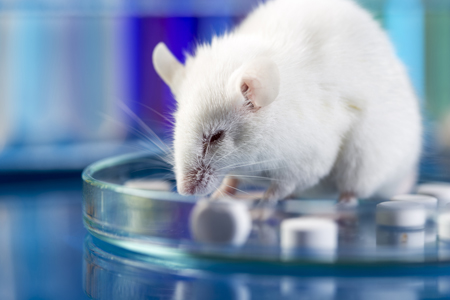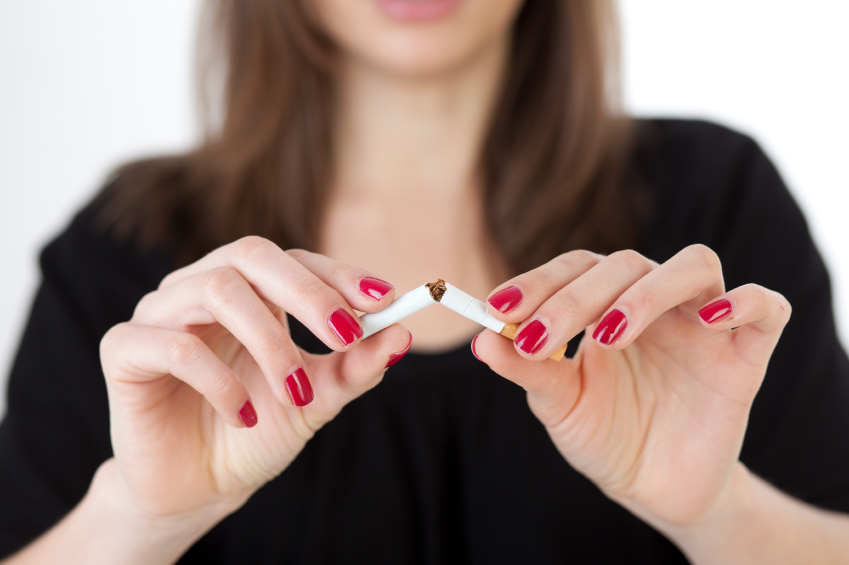Nutritional Supplement NAC Reduces Skin-Picking
The antioxidant N-acetylcysteine (NAC) has been found to be an effective treatment for a variety of habit-based behaviors—substance abuse, including cocaine, alcohol, marijuana, and nicotine; gambling; obsessive-compulsive behaviors; trichotillomania (compulsive hair-pulling), and repetitive behaviors among people with autism. Recent research by researcher Jon Grant and colleagues revealed that NAC can also treat skin-picking disorder.
At a 2015 scientific meeting, Grant reported that 1200–3000mg of NAC per day led to improvement in 47.1% of patients with a skin-picking disorder, compared to 19.2% improvement in patients who received placebo.
In addition to its positive effects in people with addictions and habit-based behaviors, NAC has also improved mood and anxiety in bipolar disorder and treated negative symptoms of schizophrenia, such as withdrawal and lack of motivation.
Editor’s Note: Given NAC’s effectiveness in such a wide range of disorders and behaviors, it could be a particularly useful treatment for people with major psychiatric disorders, such as bipolar disorder or schizophrenia, with co-occurring substance abuse.
N-acetylcysteine Reduces Self-Harm, Restores Amygdala Connectivity in Young Women
 N-acetylcysteine (NAC) is an anti-oxidant nutritional supplement that has been found to reduce a wide range of habitual behaviors, including drug and alcohol use, smoking, trichotillomania (compulsive hair-pulling), and gambling. It also improves depression, anxiety, and obsessive behaviors in adults, as well as irritability and repeated movements in children with autism. A new study suggests NAC may also be able to reduce non-suicidal self-injury, often thought of as “cutting,” in girls aged 13–21.
N-acetylcysteine (NAC) is an anti-oxidant nutritional supplement that has been found to reduce a wide range of habitual behaviors, including drug and alcohol use, smoking, trichotillomania (compulsive hair-pulling), and gambling. It also improves depression, anxiety, and obsessive behaviors in adults, as well as irritability and repeated movements in children with autism. A new study suggests NAC may also be able to reduce non-suicidal self-injury, often thought of as “cutting,” in girls aged 13–21.
The open study, presented in a poster by researcher Kathryn Cullen at the 2015 meeting of the Society for Biological Psychiatry, compared magnetic resonance imaging (MRI) scans of 15 healthy adolescent girls to scans of 22 girls who had been engaging in self-injury, both before and after this latter group received eight weeks of treatment with N-acetylcysteine. Doses were 1200 mg/day for the first two weeks, 2400mg/day for the next two weeks, and 3600mg/day for the final four weeks. The girls also reported their self-injury behaviors.
Treatment with NAC reduced the girls’ self-injury behaviors. The brain scans showed that NAC also increased resting-state functional connectivity between the amygdala and the insula. Connectivity in this region helps people regulate their emotional responses. At baseline, the girls who engaged in self-harm had had deficient connectivity between the amygdala, the prefrontal cortex, insula, and the posterior cingulate cortices compared to the healthy girls, and this improved with the NAC treatment.
More Evidence N-Acetylcysteine Added to Risperidone Improves Irritability in Autism
We reported in 2014 that researchers Ahmad Ghanizadeh and Ebrahim Moghimi-Sarani had found that the over-the-counter nutritional supplement n-acetylcysteine (NAC) added to the atypical antipsychotic risperidone reduced irritability in autism more than placebo added to risperidone.
A randomized, double-blind, placebo-controlled clinical trial published by M. Nikoo and colleagues in Clinical Neuropharmacology in 2015 replicated these results. Forty children with autism disorders aged 4–12 years were randomized to receive either risperidone plus NAC or risperidone plus placebo. Risperidone doses were between 1 and 2 mg/day, and NAC doses were 600 to 900 mg/day. By the end of the 10-week study, those children who received NAC had significantly greater reductions in irritability and hyperactivity/noncompliance than those who received placebo.
Editor’s Note: Three placebo-controlled studies have supported the efficacy of NAC in autism. One 2012 study, by A.Y. Hardan in Biological Psychiatry, evaluated monotherapy with oral NAC. In the other two, NAC was added to treatment with risperidone.
The Combination of N-Acetylcysteine and Varenicline Reduces Nicotine Addiction in Rats
Nicotine addiction is highly cue-dependent, meaning that certain situations or places will make smokers crave a cigarette even if they’re trying to quit. Researchers working with rodents are exploring a combination of treatments that address different behavioral and neurobiological mechanisms to reduce nicotine addiction. In a recent study by Cassandra Gipson-Reichardt and colleagues, N-acetylcysteine reduced cue-induced nicotine seeking, while varenicline reduced nicotine self-administration. Together the drugs worked better to reduce nicotine relapse than either drug on its own.
In the study, rats were trained to self-administer nicotine (with 0.02mg/kg infusions), and cues were used to reinstate nicotine seeking. The rats were treated with 10 and 30 mg/kg injections of NAC and 1 and 3 mg/kg injections of varenicline.
Relapse is associated with rapid synaptic potentiation in the reward area of the brain, the nucleus accumbens. In addition to the positive behavioral changes noted, NAC also inhibited this synaptic potentiation, limiting rapid changes in the size of spines on dendrites and reducing the ratio of AMPA to NMDA (two different compounds that mimic glutamate) in the core of the nucleus accumbens.
Editor’s Note: The combination of NAC and varenicline has not yet been studied in humans, but because both compounds are effective in reducing smoking, it is likely that this animal research on nicotine will be replicated in humans who are addicted to the nicotine in cigarettes.
N-Acetylsysteine Reduces Cutting Behaviors
Cutting, or non-suicidal self injury, is a serious problem among adolescents, and few treatments are available. Researcher Kathryn Cullen and colleagues have found that N-acetylcysteine (NAC), an antioxidant nutritional supplement that has been effective in the treatment of depression and many addictions and habit-related behaviors, can reduce cutting.
The study included 25 participants with a history of non-suicidal self injury, aged 13–21, and 12 controls. They participated in brain scans before and after treatment. Compared to the controls, the self-injurers showed greater overall psychopathology, greater activation in a few brain regions (precuneus, posterior cingulate, insula, and temporal lobes), and reduced lower left frontal activation. Patients who received NAC up to 900mg twice daily in weeks 5–8 of the study reduced their cutting and also showed reduced psychopathology. An increase in frontal activation in response to negative emotion was linked to the reduction in cutting.
Editor’s Note: NAC improves mood in depression, many addictions, and many habits including trichotillomania (excessive hair-pulling), nail biting, and cutting. It may do this by increasing glial glutamate transporters in the nucleus accumbens, the brain’s reward center, which lessens the magnitude of the glutamate signal, mediating the compulsion to engage in the habitual behavior.
Effect Size of Autism Treatments
At the 2014 meeting of the American Academy of Child and Adolescent Psychiatry, Fung et al. presented a meta-analysis of treatments for autism that ranked them in terms of statistical effect size, ranging from 0.9 (large), to 0.5 to 0.8 (medium), to <0.4 (small). The only drug with a large effect size was risperidone, at 0.9. Most effect sizes were medium, including aripiprazole at 0.8 and N-acetylcysteine (NAC) at 0.7. Both clonidine and methylphenidate had effect sizes of 0.6, and tianeptine’s was 0.5.
Fung and colleagues noted that the first two on the list, the atypical antipsychotics risperidone and aripiprazole, often have problematic side effects (such as sedation, weight gain, and motor symptoms) that must be balanced against their effectiveness. In contrast, NAC is well tolerated with few side effects, and two placebo controlled studies showed that it was effective both alone and as an adjunctive treatment to the antipsychotic risperidone.
High Risk of Suicide Attempts in Bipolar Disorder with Substance Abuse
At the 2014 meeting of the International College of Neuropsychopharmacology, researcher Rieva et al. reported that 60% of bipolar patients with comorbid alcohol abuse have attempted suicide, and 48% of bipolar patients with cocaine abuse have attempted suicide. Thus, both of these comorbidities deserve specific attention and treatment. Unfortunately there are currently no Federal Drug Administration–approved drugs for bipolar patients with these comorbidities. The most promising treatments, based on data in patients with primary addictions, are the nutritional supplement N-acetylcysteine and topiramate, which have both performed better than placebo in studies of alcohol and cocaine abuse disorders.
N-acetylcysteine May Improve Prodromal Schizophrenia
 At the 2014 meeting of the International College of Neuropsychopharmacology, researcher N. Miyake described the effects of the nutritional supplement n-acetylcysteine (NAC) on clinical symptoms in subjects with subthreshold symptoms of psychosis.
At the 2014 meeting of the International College of Neuropsychopharmacology, researcher N. Miyake described the effects of the nutritional supplement n-acetylcysteine (NAC) on clinical symptoms in subjects with subthreshold symptoms of psychosis.
N-acetylcysteine, a glutathione precursor, has neuroprotective effects. In this case series, four patients with subthreshold psychosis were given 2000mg/day of NAC for 12 weeks. The patients’ symptoms improved to the point that three of the four were no longer considered at risk for psychosis.
Editor’s Note: These promising anecdotal observations deserve careful follow up using a control group. Omega-3 fatty acids have been show to slow conversion to full psychosis and performed better than placebo in a controlled study. Both n-acetylcysteine and omega-3 fatty acids should definitely be studied for those with emerging symptoms of bipolar disorder.
N-acetylcysteine Decreases Smoking
It appears that the nutritional supplement n-acetylcysteine (NAC) may be useful for people who want to quit smoking. Researcher Eduardo S. T. Prado et al. reported that compared to placebo, NAC decreased the number of cigarettes a patient smoked per day and the amount of carbon monoxide they exhaled. Participants in the study took 1,500mg of NAC twice a day.
Editor’s Note: It looks as though NAC is effective in most addictions, including gambling, cocaine, heroin, marijuana, alcohol, and now smoking. Since it also helps depressed mood and anxiety in patients with bipolar illness (a finding first reported by researcher Michael Berk et al. in 2008), and can improve trichotillomania and obsessive compulsive disorder (OCD), it could be an important adjunctive treatment for many patients with bipolar illness who also suffer from many of these comorbidities. The usual dose in most of these studies was 500mg twice a day for one week, then 1,000mg twice a day thereafter, as opposed to the doses of 1,500mg twice a day that were used in the smoking study.
Combination of N-acetylcysteine and Risperidone Improves Irritability in Autistic Disorders More Than Placebo and Risperidone
In a 2013 study of 40 children and adolescents with autism spectrum disorders published by Ahmad Ghanizadeh and Ebrahim Moghimi-Sarani in the journal BMC Psychiatry, the combination of the over-the-counter nutritional supplement n-acetylcysteine (NAC) and the atypical antipsychotic risperidone alleviated irritability more than the combination of placebo and risperidone. Side effects were mild. The data extend 2012 observations by A.Y. Hardan et al. in which NAC improved irritability and stereotypy (repeated behavior) in autism more than placebo did.
The two studies taken together support the effectiveness of NAC prescribed either alone or in conjunction with an atypical antipsychotic for the treatment of autism.









